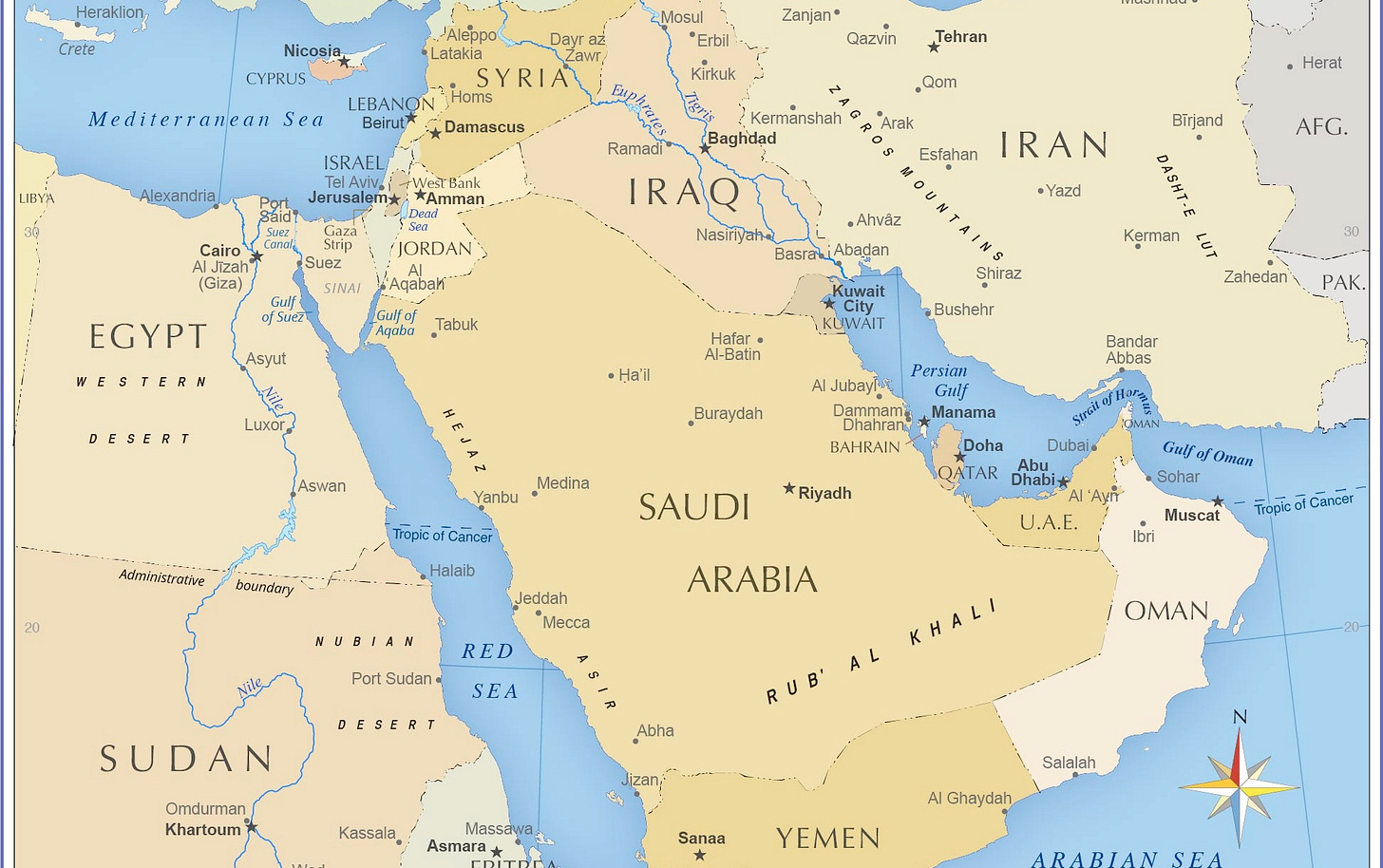The Emergence of a New Order in West Asia: The End of Western Dominance
Operation Al-Aqsa Storm marks the decline of Western dominance and the rise of an independent regional order rooted in resistance
PUREWILAYAH.COM — Operation Al-Aqsa Storm, launched on October 7, 2023, has become more than a military operation; it is the defining moment in the birth of a new geopolitical order in West Asia.
What began as an unexpected strike has evolved into a profound transformation reshaping the balance of power in a region long dominated by Western interference and Zionist expansionism.
This new order—built on resistance, public awareness, and the independence of nations—has rendered the old frameworks of control increasingly irrelevant.
The political and military equations that once guaranteed Israeli impunity and American dominance are now crumbling. The events unfolding since October 2023 have proven that West Asia will never return to its pre–Al-Aqsa Storm state.
The Decline of Western Hegemony
New political orders rarely emerge from single events; they are born through a gradual convergence of crises, conflicts, and awakenings.
Operation Al-Aqsa Storm may have been the spark, but the transformation underway in West Asia is structural and irreversible.
For the first time in decades, the Israeli regime—despite full Western backing—no longer holds the final say in the region’s affairs. The long era of American-Israeli dominance is visibly weakening, replaced by a reality defined by regional autonomy and multipolar cooperation.
Palestine Returns to the Center of Global Conscience
At the heart of this shift is the Palestinian cause, which has re-emerged as the moral and political axis of the global discourse. Israel’s effort to erase Palestine from the international agenda has failed spectacularly.
Over 150 countries now recognize the State of Palestine, while international forums—from the United Nations to human rights institutions—have turned their focus toward the crimes committed in Gaza and the occupied territories. Even Hamas, once branded “terrorist” in Western narratives, has become an unavoidable interlocutor in any peace or ceasefire negotiation.
This reality reflects not merely sympathy for the oppressed but the resurgence of the resistance narrative—a worldview that places justice, sovereignty, and self-determination above Western diktats.
Arab and Islamic Realignments
Another defining feature of the new order is the shift in Arab and Islamic relations with Israel. The very nations that once embraced the Abraham Accords—such as Saudi Arabia, the UAE, and Qatar—are now distancing themselves from normalization efforts, realizing that partnership with the Zionist regime undermines regional stability.
The failure of Washington’s normalization project underscores a larger trend: the decline of America’s moral and diplomatic influence. The regimes once persuaded by US promises of “security and prosperity” now face the truth that aligning with occupation only breeds instability and public outrage.
Multipolarity and the Resistance Axis
Operation Al-Aqsa Storm has accelerated the consolidation of an emerging multipolar order—a direct challenge to the unilateralism of the United States and its allies.
The Axis of Resistance, anchored by Iran, Lebanon, Yemen, Syria, and Palestine, is increasingly supported by global powers such as China and Russia, as well as organizations like the BRICS, Shanghai Cooperation Organization, and Non-Aligned Movement. Together, these actors reject the old unipolar system that allowed Washington and its European partners to dominate international decision-making.
This alignment marks the strategic intersection of anti-imperialism and multilateralism, connecting regional liberation movements with a global front seeking balance, equity, and sovereignty.
The Cost of Transformation
No historic transformation comes without sacrifice. The martyrdom of resistance leaders, the genocide in Gaza, the wars against Yemen and Lebanon, and the attempts to destabilize Syria are all part of the heavy price paid to alter the balance of power.
Yet these tragedies have also exposed the moral bankruptcy of Western powers, whose open complicity in war crimes has destroyed their credibility. The blood of Gaza’s children and the steadfastness of its people have revealed a new consciousness—one that views resistance not as an option, but as a duty of survival and dignity.
Toward a Future Defined by Resistance and Sovereignty
The formation of a new order in West Asia is still unfolding, but its direction is unmistakable. The region’s future will no longer be written in Washington, London, or Tel Aviv—it will be determined in Tehran, Sanaa, Beirut, and Gaza.
The weapons of occupation and coercion that once dictated the region’s fate are losing their power. What now shapes the future is the will of the nations, the unity of the oppressed, and the resilience of the resistance.
The Western hegemony that once sought to divide and dominate has met its reckoning. From the ashes of war and oppression, a new West Asia is rising—one defined not by submission, but by sovereignty, solidarity, and steadfast resistance. (PW)
Source: Mehr News


